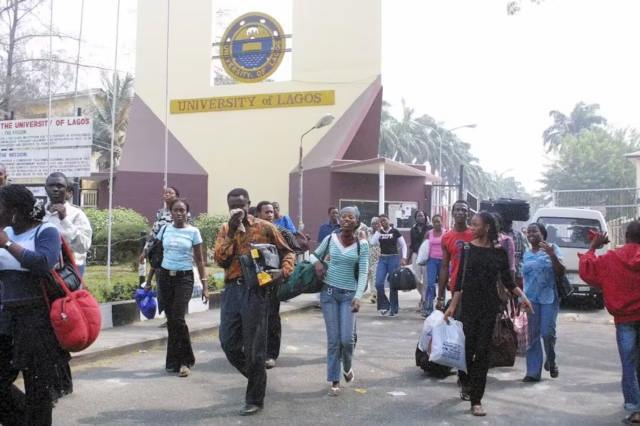Nigeria stands at a critical crossroads. Its university system—once vibrant and ambitious—is now in freefall. Having written on education policy for over a decade, I’ve witnessed cycles of promise crushed by chronic neglect. The question we all must confront is stark: Is Nigeria’s university system headed for irreversible collapse?
Table of Contents
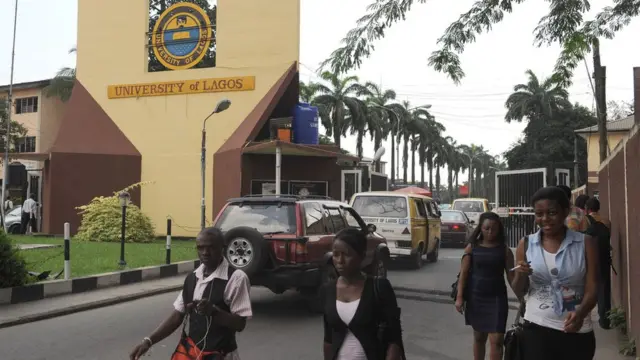
Academic Burnout and Attrition
At the core of the crisis lies a dire human resource shortage. Nearly every professor in present-day universities began as a decorated student; yet the path to full professorship is a lonely one. For every 100 graduate hires, perhaps only 10 survive two decades of teaching, research, and publication to reach full professorship.
The reality: each departure—not just by resignation but death or expatriation—depletes institutional memory and mentorship. Prominent academics lament: “If you recruit one hundred grads, only ten become professors after over 20 years… the rest leave or simply don’t make it.” Amid such attrition, even the elites risk eroding, and that erosion bleeds the entire system.
The Pay Paradox: Demotivation by Delay
A troubling trend has emerged: salary delays stretching 40–45 days. Educators earning less in actual terms than their counterparts in polytechnics, who often hold postgraduate credentials, describe a system backwards.
One senior professor noted:
“Poor pay, combined with salary delays, is destroying the university system… polytechnic lecturers earn more than university lecturers—even though the latter train postgraduates.”
Delayed pay signals disrespect. Worse, it incentivises talented academics to quietly exit, draining universities of their lifeblood.
Industrial Turbulence: ASUU, Funding Fights, and Strikes
The Academic Staff Union of Universities (ASUU) has long battled for better working conditions, infrastructure upgrades, and fulfillment of prior agreements. Their strikes—sometimes spanning months—may pause academic wheels, but they highlight systemic failure.
Government promises have consistently fallen short. In 2022, despite a reprieve in funding, the projected bleak outlook remained unchanged, and ASUU maintains that meaningful change remains elusive.
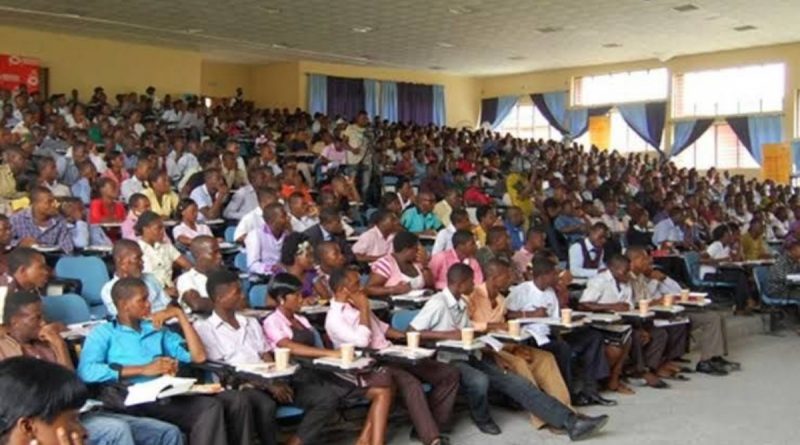
Infrastructure Breakdown and Digital Divide
Many campuses suffer from crumbling lecture halls, chronic overcrowding, and weak ICT infrastructure. As a 2025 critique put it:
“No digital skills. No emotional intelligence… educational structure collapsing under decades‑long neglect… We’re not educating them—we’re disabling them.”
Without functional online platforms or proper digital training, universities fall behind global standards. Nigerian academics studying distance education have documented pervasive gaps in online readiness.
Brain Drain: The Japa Effect
Nigeria’s “Japa” phenomenon—a diaspora migration of skilled professionals—extends deeply into academia. The country loses doctors, engineers, teachers, and university professors in vast numbers.
Cumulatively, more than $2 billion has been invested in training, only for graduates to leave. The loss is multifaceted: Nigeria forfeits investment, while losing expertise crucial to developing future academic leaders.
Proliferation Without Planning: Quantity Over Quality
As of March 2025, Nigeria hosts 283 universities—69 federal, 66 state, and 148 private institutions. While expansion seems impressive, many newcomers lack infrastructure, qualified faculty, and accreditation depth.
Some private universities have recently shut down—one in Kaduna, launched in 2021, closed within three years amid legal controversies. Rapid growth without quality controls undermines system credibility and graduates’ employability.
Corruption and Political Intervention
Journalists and analysts routinely expose how governance failures, politicking, and corruption derail university operations. In 2025, BusinessDay argued politics have “fouled the university ecosystem,” with appointees prioritising patronage over merit.
The result: flawed leadership, unqualified appointments, misuse of funds—all drive away skilled academics and donors alike.
Fiscal Austerity: Broken Budgets, Unkept Promises
Nigeria devotes roughly 7–8% of annual budgets to education—far below the UN’s recommended benchmark. Although budget lines exist, they often remain underutilised.
Revitalisation funds and allowances are approved but rarely disbursed meaningfully. The recurring outcome is stagnation—empty classrooms and poorly motivated staff.
International Fallout: Global Recruitment Hits Home
Foreign universities, especially in the UK and Scotland, have reduced Nigerian student intake due to economic hardship—particularly naira devaluation.
This expatriate education reliance not only drains tuition income from Nigeria’s tertiary institutions, but also signals loss of talent and confidence. If graduates increasingly seek foreign alternatives, home universities lose both tuition revenues and prestige.
Students, Parents and the Human Toll
Behind academic stats lies human cost. Students face disrupted semesters, uncertain outcomes, and debt. Parents—already burdened by rising living costs—might pay tuition into irregular systems or endure multiple strikes.
Little wonder many resort to private universities, often overextending finances or choosing inadequate institutions out of desperation.
Where Do We Go From Here?
A. Stabilising Faculty: Pay, Security, Recognition
- Commit to on‑time salary payments, at least matching remuneration offered in polytechnics.
- Create fast‑track pathways for promotion to encourage retention.
- Provide housing, health and research grants to attract high-calibre academics.
B. Rebuilding Trust with ASUU
- Honour past agreements transparently.
- Establish a permanent joint funding-monitoring committee.
- Offer conditional grants tied to deliverables.
C. Rehabilitating Infrastructure & Digital Capacity
- Launch rapid digital transformation—online systems, e‑libraries, and teacher ICT training.
- Partner with telecom firms and donors to bolster campus connectivity.
- Prioritise classrooms, lecture theatres, and laboratories.
D. Confronting Brain Drain
- Implement “reverse Japa” schemes with research grants and contractual return programs.
- Leverage diaspora lecturers in online teaching roles.
- Create bridges with industries to enable lucrative academia-industry roles.
E. Curbing Politicisation and Corruption
- Enforce depoliticisation of university councils.
- Require transparent tenders and performance accountability.
- Involve civil society and professional bodies in oversight.
F. Rationalising University Expansion
- Redirect resources from low‑capacity institutions to bolster existing ones.
- Impose strict conditional licencing: resources, faculty quality, and infrastructure readiness.
G. Budget Realignment
- Raise educational allocation toward 20% of annual budget as recommended by UNESCO.
- Tie disbursements to verifiable developmental markers.
A Personal Appeal
No one wants Nigeria to lose its intellectual firepower. Universities shape society, spur innovation, and produce tomorrow’s leaders and entrepreneurs. It’s not hyperbole to say that neglecting the university system now risks condemning generations to mediocrity and dependence.
I can still picture my mentor lecturing under failing lights, yet beaming with hope each morning. That hope must endure. Nigeria’s destiny won’t improve by accident—it depends on deliberate policy, unwavering political will, and cross‑sector commitment.
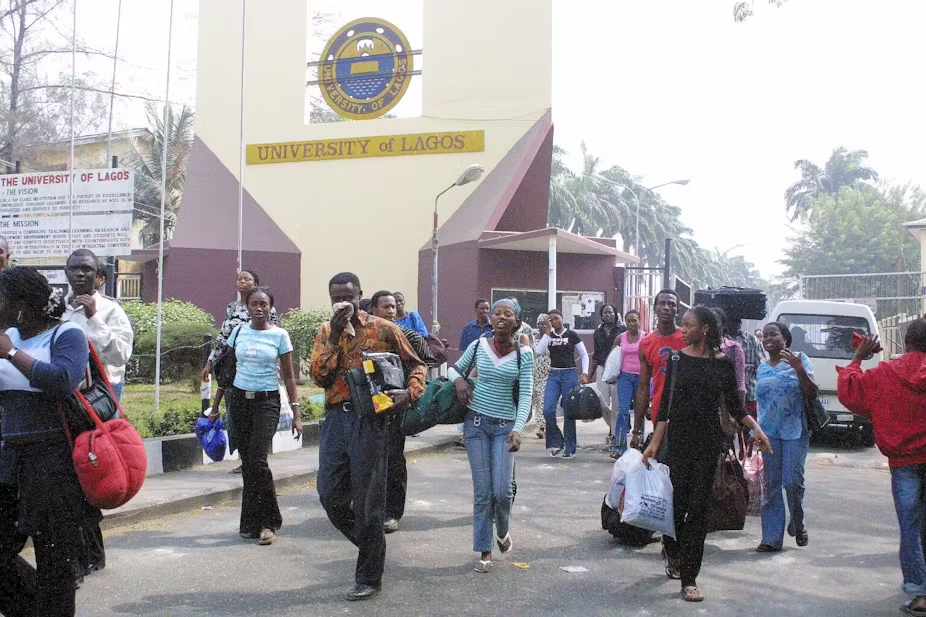
Conclusion
Nigeria’s university system is badly wounded—but not beyond recovery. It demands a comprehensive reset: fair funding, transparent governance, digital readiness, and faculty respect. The blueprint for a more promising future already exists in policy documents and global best practices—what’s missing is execution.
Let’s choose to transform the university narrative. Let’s refuse to watch infrastructure crumble and careers dim. Instead, let’s rebuild the “citadels of knowledge” that can carry Nigeria forward in the 21st century.
Join Our Social Media Channels:
WhatsApp: NaijaEyes
Facebook: NaijaEyes
Twitter: NaijaEyes
Instagram: NaijaEyes
TikTok: NaijaEyes
READ THE LATEST EDUCATION NEWS





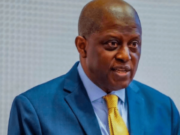








![Mr Macaroni Drops Blistering Remark: ‘APC Filled with Most Corrupt People’ as He Slams Tinubu’s Controversial Pardon for Criminals=]] Mr Macaroni](https://naijaeyesblog.com/wp-content/uploads/2025/03/Mr-Macaroni-1-1-180x135.avif)

![Chaos Erupts in Abuja Hotel as BBNaija Star Phyna Sparks Fierce Scene Over Alleged N200,000 Dispute [VIDEO] Phyna](https://naijaeyesblog.com/wp-content/uploads/2024/11/A-Picture-of-Phyna-BBNaija-180x135.jpg)




















